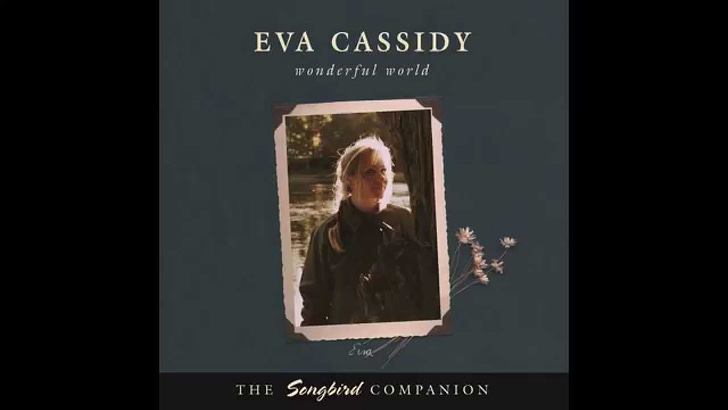An old Facebook note from 2018
Eva Cassidy was 33 years old and at the height of her creative powers when she was struck down by melanoma in 1996. At the time of her death, she was largely unknown outside the Washington D.C. area. But after her death, someone in the U.K. happened to play Eva’s recording of “Somewhere Over The Rainbow” on the radio and the result was that her self-recorded “Songbird” album zoomed to the top of the U.K. music charts. Only after she was gone did the world start to recognize her artistic beauty.
Today, Eva’s friends laugh at the thought of her posthumous musical success. They say that this is exactly how she would have wanted it. She was never one for the limelight and her quirky musical repertoire never really fit the music industry’s tightly scripted genres.
Sometimes life is unfair and, for people like Eva, much depends on how you receive and process life’s unfairness.
Hundreds of years before Eva died, a young middle eastern boy saw his city sacked by invaders right before he was carried off into captivity. He lost his family, his culture, and most of his friends. Like Eva, all the dreams of his young life were suddenly overturned by tragedy. Like Eva he had to decide how to respond to that tragedy.
The easiest response, of course, is to pick someone to blame. For many people, the knee jerk response to suffering is to blame God. After all, if God is all powerful, then he is to blame when something happens that doesn’t meet with our approval. “How could a loving God...?” You fill in the blank. “How could a loving God let this happen?” “How could a loving God allow so much evil in the world?” “How could a loving God allow that natural disaster?” All of these questions presuppose, without examination, a certain certain set of assumptions about the way the world works.
But there’s no evidence the young middle eastern boy occupied himself with blame placing. And anyway, blame placing is very often just a veiled form of blame shifting. The middle eastern boy resolved, on the heels of his great tragedy, that he was going to honor God in the midst of great pressure not to. Perhaps you’ve heard of this kid - his name was Daniel.
Hard on the heels of great personal tragedy Daniel determined that, notwithstanding the adversarial pressure he was under as a captive, he would choose to believe that God’s explanation of life was true.
And even as an old man, Daniel still concerned himself with the things of God, urgently praying for answers to questions raised by his reading the text of scripture. In one of the more interesting stories of the bible, an angel appeared to Daniel to explain that he had been dispatched to answer Daniel’s question weeks before, but battles were taking place in the heavenly realms that had prevented him from getting to Daniel before that very moment. Even that moment, the angel said, he would be returning to the fight after delivering his message to Daniel.
Many things intrigue me about that story, but perhaps the most interesting thing is the extent to which it reveals that there are things afoot, outside our field of vision, which nevertheless greatly impact our lives and the lives of those around us. Even getting answers to our prayers is apparently affected.
Immediately responding to our suffering by looking for someone to blame may, in fact, be prideful and foolish. Especially since we don’t really know what we’re talking about. Thomas Sowell said, in a recent interview, “You can’t have extensive knowledge about everything but you can have knowledge about the extent of your own ignorance.”
Quite.
A response to suffering that assumes we don’t know everything may actually be an important prerequisite to ever having the ability to choose joy in the midst of that suffering.
A few weeks before she died, friends of Eva in the Washington D.C. area held a benefit concert for her. She was amazed at the turnout and moved by the outpouring of love. During the concert, in her last public performance, Eva required help to get onto the stage and up onto a stool with her guitar. She was in a great deal of pain and explained to the crowd that she had taken a large dose of morphine to fortify herself for her performance. And, in the excruciating“unfairness” of that dying moment, these are the words she nevertheless chose to sing:
I see trees of green, red roses too
I see them bloom for me and you
And I think to myself what a wonderful world
I see skies of blue and clouds of white
The bright blessed day, the dark sacred night
And I think to myself what a wonderful worldThe colors of the rainbow so pretty in the sky
Are also on the faces of people going by
I see friends shaking hands saying how do you do
They're really saying I love you
I hear babies crying, I watch them grow
They'll learn much more than I'll never know
And I think to myself what a wonderful world
Yes I think to myself what a wonderful world



